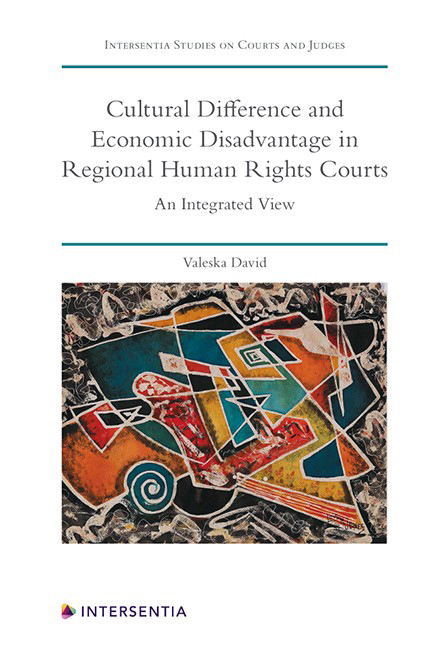Book contents
- Frontmatter
- Dedication
- Foreword
- Preface
- Acknowledgements
- Contents
- List of Cases
- Introduction
- PART I THEORETICAL FOUNDATIONS
- PART II RETHINKING CULTURAL DIFFERENCE FROM AN INTEGRATED PERSPECTIVE ON HUMAN RIGHTS
- PART III RETHINKING ECONOMIC DISADVANTAGE FROM AN INTEGRATED PERSPECTIVE ON HUMAN RIGHTS
- Conclusion
- Bibliography
- Index
- About the Author
- Frontmatter
- Dedication
- Foreword
- Preface
- Acknowledgements
- Contents
- List of Cases
- Introduction
- PART I THEORETICAL FOUNDATIONS
- PART II RETHINKING CULTURAL DIFFERENCE FROM AN INTEGRATED PERSPECTIVE ON HUMAN RIGHTS
- PART III RETHINKING ECONOMIC DISADVANTAGE FROM AN INTEGRATED PERSPECTIVE ON HUMAN RIGHTS
- Conclusion
- Bibliography
- Index
- About the Author
Summary
SETTING THE SCENE: A FRAGMENTED LAW FOR A COMPLEX WORLD
Plurality and inequality are features of many of today's societies. In this context, globalisation has made us very aware of growing divides not just between regions and states, but also among people. Differences along the lines of, for example, ethnic origin, religion, economic background, sex and sexual orientation, morals and lifestyles seem to have multiplied or become more visible. All this ‘diversity ’, as it is usually labelled, has generated anxiety and concern, particularly in the last two or three decades. The concerns are largely motivated by the strong political and legal mobilisation that questions of social difference generate, as these differences translate into differences in power. As such, they give rise to claims of injustice, inequality , exclusion and disadvantage.This is where human rights , the prime language of political and legal mobilisation,come into play. Whether from the viewpoint of emancipation or legitimacy, human rights law has been used and criticised for (not) dealing with issues of difference or diversity .
Both states and individuals, especially those in non-hegemonic positions, expect human rights law to reflect and respond to their specific interests, values and needs. States have typically requested leeway to adapt human rights standards to their particular cultural, political and economic contexts. One body of literature has thus dealt with the relationship between human rights law and the so-called’ non-Western'states.But within states, individuals and groups have made similar demands. People claim that their rights are violated because their particularities are both taken and not taken into account in decision-making, in accessing social services or in the distribution of burdens and resources. The present book is situated at this level of analysis.
It is argued that human rights law, particularly as regards the human protected by it,'simply does not do justice to the full complexity, the sheer fleshy variability and multiple forms, colours, shapes and sex/genders of the embodied human personality in all its vulnerability ‘. For the universal and abstract subject of the Universal Declaration of Human Rights (UNDHR) was the projection of those with power. This is to say that the interests and concerns of mainly Western middle-class, heterosexual, Christian, body-able men determined, to a large extent, what counted as a human rights issue.
- Type
- Chapter
- Information
- Cultural Difference and Economic Disadvantage in Regional Human Rights CourtsAn Integrated View, pp. 1 - 14Publisher: IntersentiaPrint publication year: 2020



